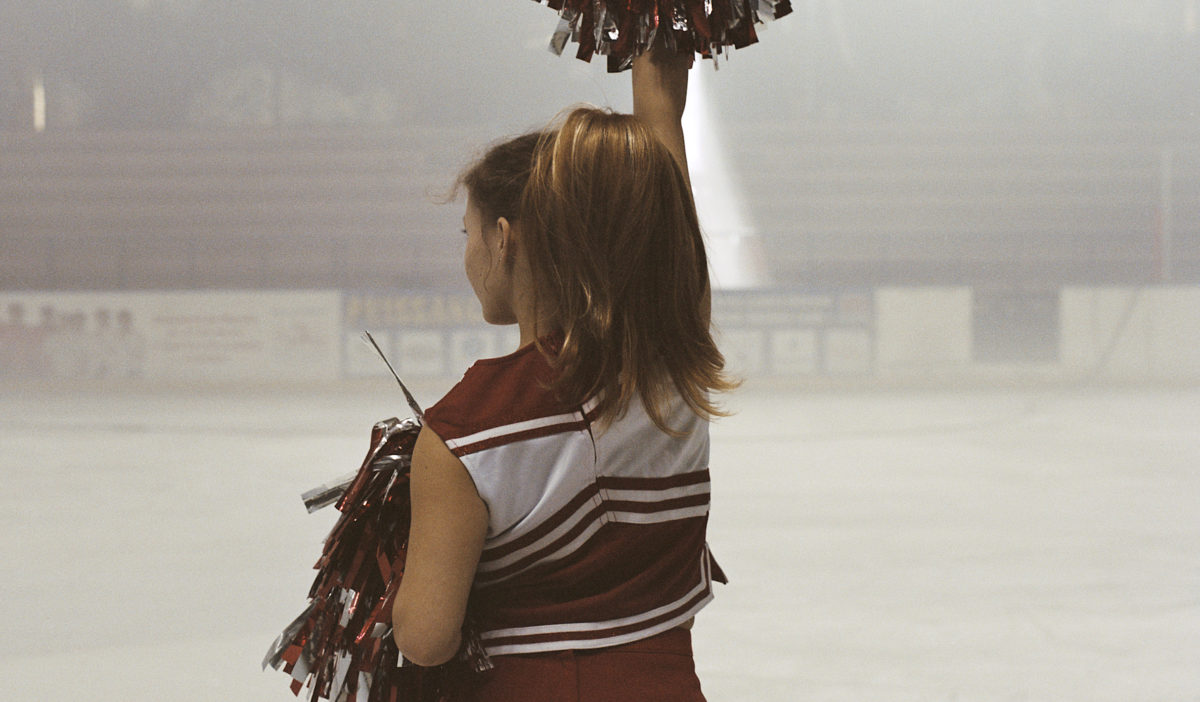
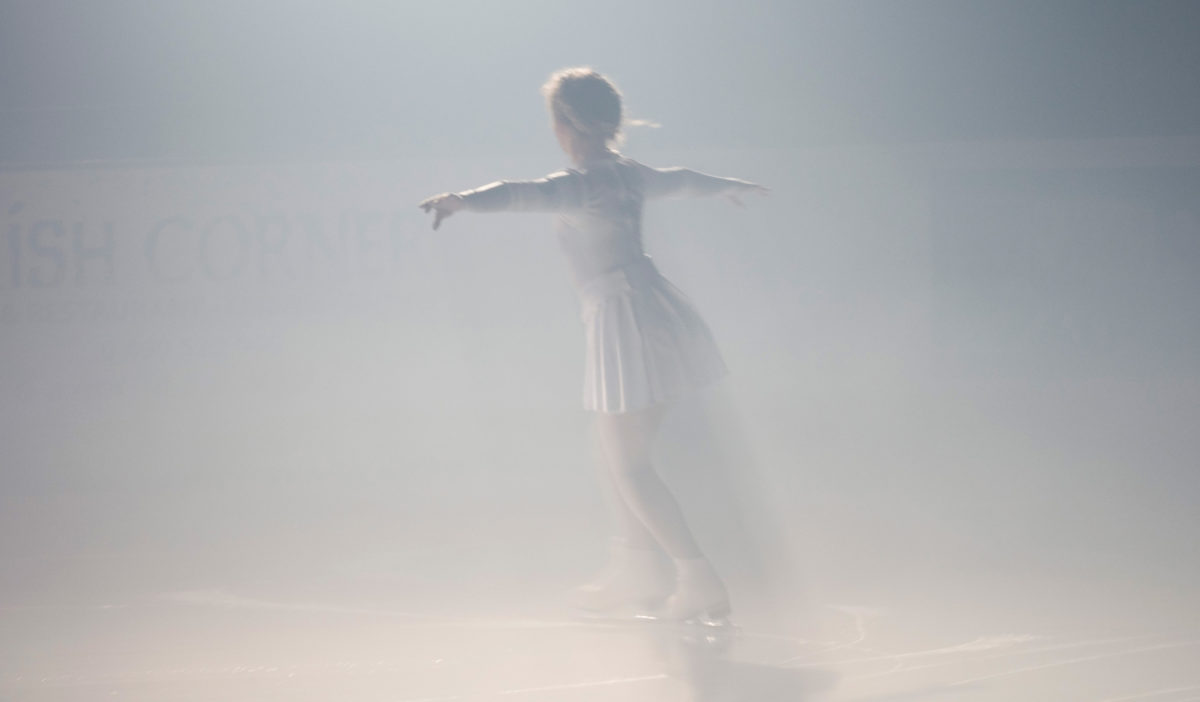
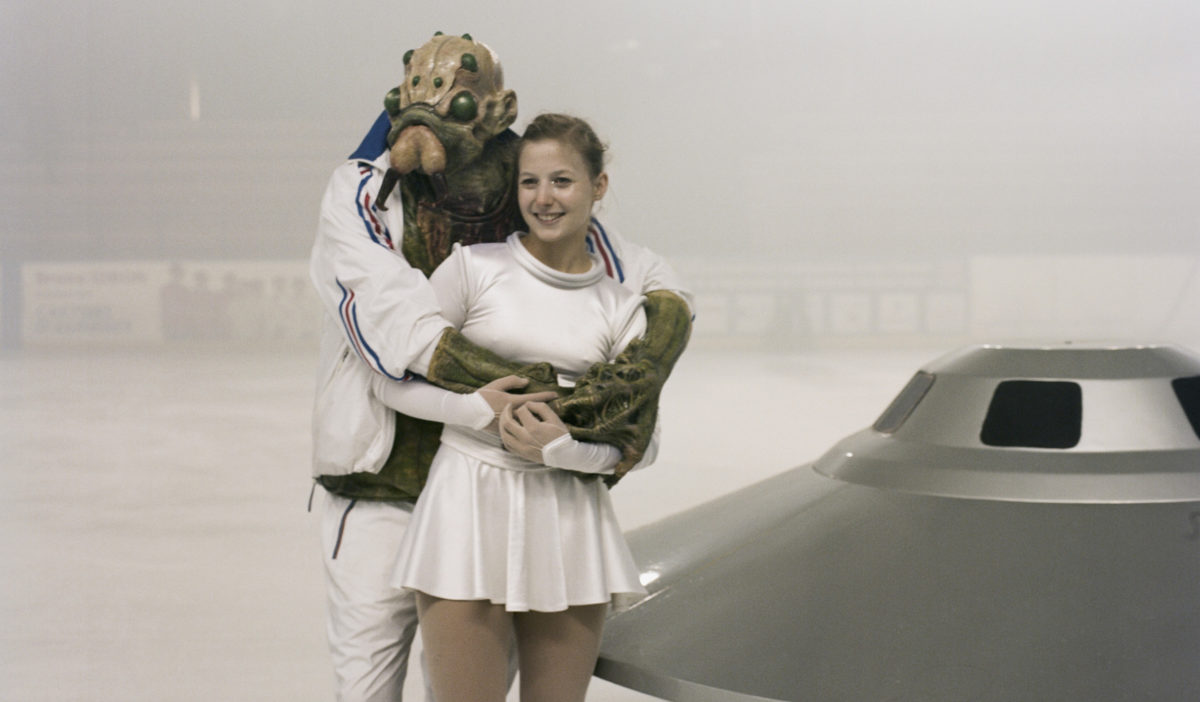
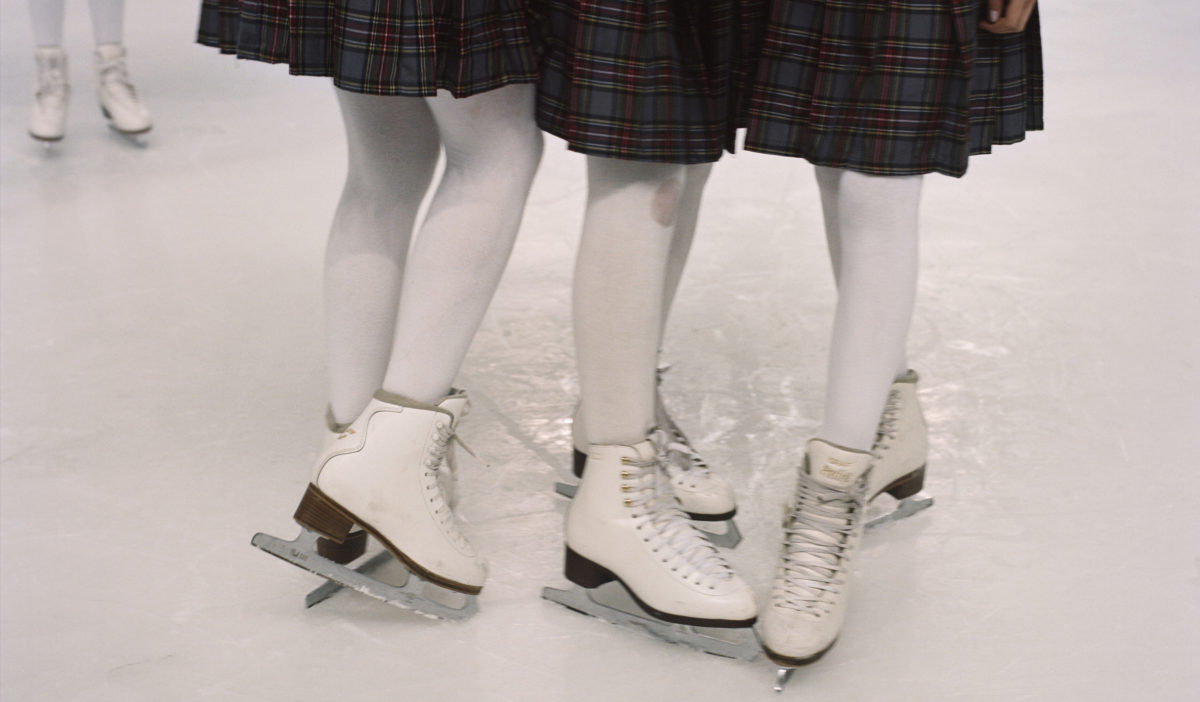
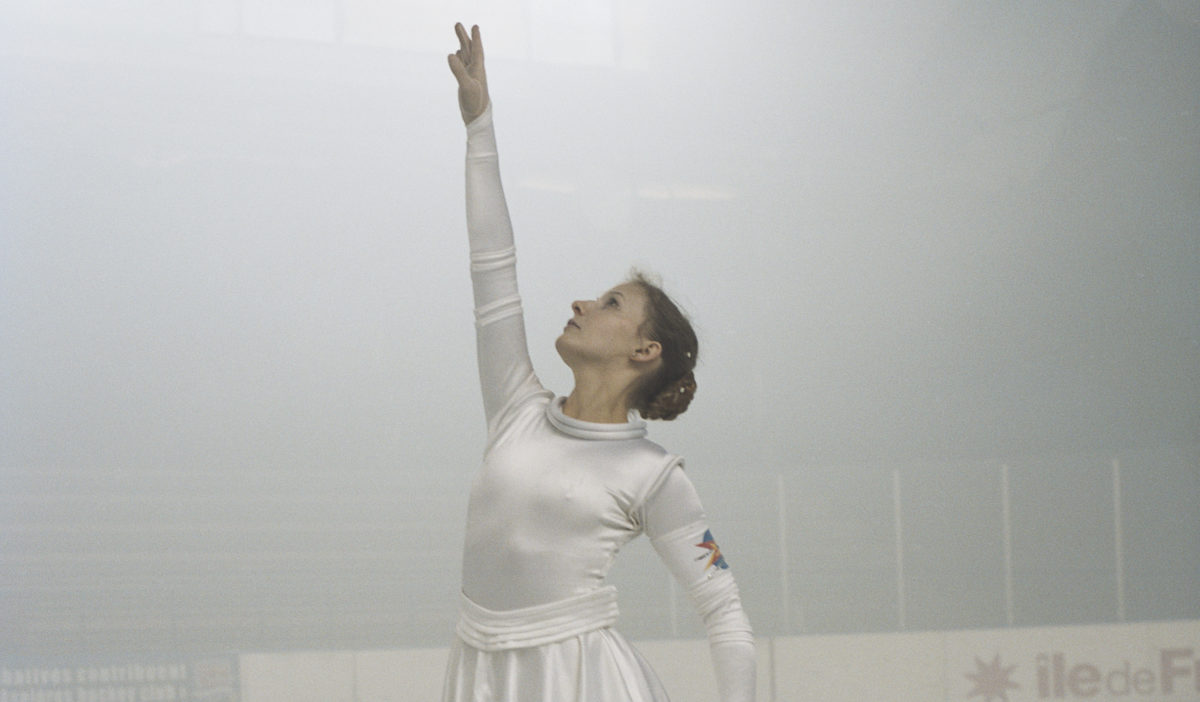
Eternelle Idole
Cast
Conception, choreography and scenography Gisèle Vienne
Created in collaboration with, and performed by Aurore Ponomarenko and Jonathan Capdevielle
Light Patrick Riou
Music composed by Stephen O’Malley
Except Spiegel im Spiegel composed by Arvo Pärt and arranged by Stephen O’Malley
Original music performed by Stephen O’Malley, Steve Moore, Daniel O’Sullivan, Peter Rehberg, Jesse Sykes, Bill Herzog, Randall Dunn & Gisèle Vienne
Lyrics of Eternelle Idole Jesse Sykes
Ice skating consultant Stanick Jeannette
Costumes Cédrick Debeuf et Gisèle Vienne
Make-up and hairdressing Rebecca Flores
Masks created by Dorothéa Vienne-Pollak
Set-ups Ateliers de Grenoble (Albert Copertino, Claude Giraud, Jean-Michel Allanet) & Alain Hecquard
Set-up consultant Alexandre Vienne
With the technical support of Quartz Scène nationale Brest
Technical direction Nicolas Minssen
Production-administration-touring Bureau Cassiopée, Léonor Baudouin, Alix Sarrade & Anne-Cécile Sibué
Acknowledgements to Franck Saunier and all the team of Végapolis ice rink, Bérangère and Sylvain Privé, Jérome Jayet, Anne Fontanesi, Vincent and Céline, Ice rink of Cergy-Pontoise ice rink, On the Boards team – Seattle, Gilbert Le Corre, Caroline Boulaire and the technical team of Rinkla Stadium ice rink – Brest, Mme Bounoure, Sergei Toukmatchev, Vincent Gironde, Mlle Paulmier…
Partners
Executive producer DACM with the support of Quartz Scène nationale Brest
Gisèle Vienne is associate artist from 2007 to 2011
Coproducers Le Quartz Scène nationale Brest // Centre Chorégraphique National de Montpellier-Languedoc-Roussillon
With the Support of Ville de Grenoble & Conseil Général de l’Isère
DACM was granted the support of DRAC Rhône-Alpes – Ministère de la Culture et de la Communication for “aide à la compagnie conventionnée”, and Région Rhône-Alpes for “aide aux équipes artistiques” during the production of Eternelle Idole.
Presentation
Eternelle Idole is the first leg of a research project involving professional athletes and probing issues connected to our concept of beauty, and how perfection and imperfection are linked to beauty.
Eternelle Idole stages a 21-year-old figure skater whose teenage looks evoke the ghost of a murdered Lolita.
A skating rink is one of those emotionally charged sites that, during adolescence, often impact our common experience. The awkward entanglement of feelings is emblematic of adolescence and
indicative of transitory periods.
This show has Aurore Ponomarenko in the role of a professional figure skater, wearing a cosmonaut costume that bears more resemblance to Japanese cosplay costumes than to a real
cosmonaut outfit. This sublimated character might even be the ghost of a skater who once performed the role of a young female cosmonaut for a competition. Our recollection of this
character prompts us to reinterpret and idealize her, so that the memory is transformed into an image.
By evoking adolescence, Eternelle Idole explores the link between acute fragility and sheer willpower, between a teenager and athletic prowess.
Eternelle Idole elicits the fluctuation that happens between an individual’s fragility and aspirations. In this sense, characters performed in the realm of figure skating can compellingly embody the beauty of these intermediary spaces.
The evolution of this character into a ghost, her transformation into an image, draws on the notion of innocence. Innocence conveyed as a fantasy spawned by memory. The show begins rather
abstractly. The choreographic and musical composition plays upon the absence of a developed main theme, and deliberately sets up time-warps. When the theme at last seems to have
developed, it reaches fulfillment under a narrative form. This resolution can be seen as a response to our sense of dread caused by the character’s sublimated innocence. But the momentary alarm
quickly turns into a fantasy fiction and merely supplies us with the vestiges of drama that has been suppressed and thereby transformed.
Original soundtrack
L’étang
Guitar & Programming : Stephen O’Malley
Programming : Peter Rehberg
Recorded in Brest 0208, Paris & Vienna 0408
[as KTL]
Aurore theme
Juno 60, Korg Polysix, Piano: Steve Moore
Programming : Stephen O’Malley
Recorded in Brest & Guilers 0508
Eternal Idol
Guitar, field rec., programming : Stephen O’Malley
Piano & Clavichord : Steve Moore
Vocals : Jesse Sykes
Backing Vocals : William Herzog
Recorded in Kent 1003, Brest 0508 & Seattle 1108
Mixed by Randall Dunn at Aleph, Seattle 1108
[as Pearl]
Arrival of the trainer
M-tron : Stephen O’Malley
M-tron, Korg MS20 : Randall Dunn
Recorded & Mixed by Randall Dunn at Aleph, Seattle 1108
Spiegel im Spiegel
Piano : Daniel O’Sullivan
Guitar : Stephen O’Malley
Harp : Gisèle Vienne
Recorded in Brest 0109 with Kenan Trevien
Mixed by Mell Dettmer at Aleph, Seattle 0109
[as Chasse]
Return/Escape
ARP 2500 & M-tron : Stephen O’Malley
ARP 2500 : Daniel O’Sullivan
M-tron, Korg MS20 : Randall Dunn
Recorded 1008 at Worm/CIM Rotterdam
Recorded & Mixed by Randall Dunn at Aleph, Seattle 1108
Additional field recordings:
Shoreline 1108 by Mell Dettmer
Brest 0109 by Kenan Trevien
Mastered by Mell Dettmer at Sinister Kitchen
Music published by Ideologic Organ (adm. Rough Trade Music Publishing). Lyrics published by Spooky American Music, BMI (adm.BUG)
History
-
18, 19, 20, 21, 22 August 2012
-
09, 10 February 2011
-
17, 18 December 2010
-
18, 19, 20, 21 March 2010
-
27 March 2009
-
27, 28 February 2009
